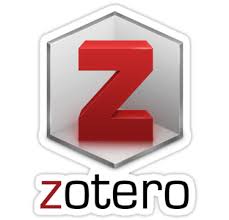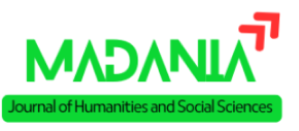Penerapan Hukum Islam pada Masa Rasulullah SAW sebagai Fondasi Perubahan Sosial dan Peradaban Masyarakat Jahiliyah
DOI:
https://doi.org/10.59240/kjsk.v5i1.141Keywords:
Islamic law, Jahiliyyah society, Islamic civilization, societal reform, moral valuesAbstract
This study aims to thoroughly examine the role of Islamic law implemented by the Prophet Muhammad (peace be upon him) in shaping a new civilization for the pre-Islamic Arab society known as the Jahiliyyah era. Employing a qualitative descriptive approach, this research analyzes primary sources such as the Qur’an and Hadith, supplemented by relevant historical literature and scholarly studies. The findings reveal that the application of Islamic law had a transformative impact on the social structure, legal order, and moral-ethical values of that society. The enforcement of criminal, civil, and family law not only established justice but also eradicated detrimental social practices such as gender discrimination, violence, and intertribal conflicts. Furthermore, Islamic law functioned as a tool for cultivating a more civilized, equitable society that upholds individual rights. This study emphasizes that the implementation of Islamic law by the Prophet was not merely a form of social regulation but a fundamental foundation for building an Islamic civilization whose influence persists to the present day.
References
konstitusi negara.
Afifa Rangkuti. (2017). Konsep keadilan dalam perspektif Islam. Tazkiya: Jurnal Pendidikan Islam, 6(1). https://doi.org/10.30829/taz.v6i1.141
Albi, A., & Setiawan, J. (2018). Metodologi penelitian kualitatif. CV Jejak.
Alwizra, S., Oktarina, R., Ikhwandri, Adrianto, & Roza, Y. (2023). Keluarga sebagai lembaga pendidikan pada masa Rasulullah. Jurnal Program Studi Manajemen Pendidikan Islam, 6(2).
Aswati, F., Azman, W., Ritonga, S., & Nopita, R. (2025). Perkembangan pendidikan Islam di era Rasulullah periode Mekkah dan Madinah. Jurnal Simki Pedagogia, 8(1), 89–100. https://doi.org/10.29407/jsp.v8i1.940
Bahriyah, A. Z., Mahrus, A., & Rohman, M. M. (2023). Periodisasi hukum Islam: Meneropong praktik hukum Islam pada masa awal Islam dan realisasinya di Indonesia. ASASI: Journal of Islamic Family Law, 3(2), 135–156. https://doi.org/10.36420/asasi.v3i2.285
Fajar Aswati, W., Ritonga, S., & Nopita, R. (2025). Perkembangan pendidikan Islam di era Rasulullah periode Mekkah dan Madinah. Jurnal Simki Pedagogia, 8(1).
Halim, F. (2015). Hukum dan perubahan sosial. Al-Daulah: Jurnal Hukum Pidana dan Ketatanegaraan, 4(1), 107–115. https://doi.org/10.24252/ad.v4i1.1492
Ismail, M. U., Rohman, M. M., & Mohsi, M. (2020). TAQNĹN AL-AHKÄ€M (Telaah sejarah legislasi hukum perdata Islam dalam hukum nasional Indonesia). Ulumuna: Jurnal Studi Keislaman, 6(1), 85–109.
Jaya Miharja. (2010). Sistem aktivitas ekonomi (bisnis) masyarakat Arab pra-Islam. El-Hikam, 3(1).
Munawir, M. F. (2011). Relevansi pemikiran Sayyid Qutb tentang tafsir Jahiliyah bagi dakwah dan pengembangan masyarakat Islam kontemporer. Jurnal Dakwah, 12(1), 69–98. https://doi.org/10.24252/ad.v4i1.1492
Rahmadani, H. P. D., & Sumanti, S. T. (2024). Studi sistem-sistem kebudayaan masyarakat Arab pra Islam. Journal of Human and Education (JAHE), 4(6).
Rohman, M. M., et al. (2024). Methodological reasoning finds law using normative studies (theory, approach and analysis of legal materials). MAQASIDI: Jurnal Syariah dan Hukum, 204–221.
Rohman, M. M. (2023). BAB 3 history embrio lahirnya politik dalam Islam dan perkembangannya. FIQH SIYASAH, 51.
Sam’un. (2011). Konstruksi historis hukum pidana Islam (formulasi hukum pidana Islam dalam lintasan sejarah). Al-Daulah: Jurnal Hukum dan Perundangan Islam, 1(2).
Suhariyanto, D., et al. (2023). Politik hukum pemilu. PT Sonpedia Publishing Indonesia.
Tahir, R., et al. (2023). Metodologi penelitian bidang hukum: Suatu pendekatan teori dan praktik. PT Sonpedia Publishing Indonesia.
Tuti Haryanti. (2015). Hukum dan masyarakat. Jurnal Tahkim, 10(2). DOI:https://doi.org/10.33477/thk.v10i2.57
Downloads
Published
How to Cite
Issue
Section
License
Copyright (c) 2025 Tukijo

This work is licensed under a Creative Commons Attribution-NonCommercial-ShareAlike 4.0 International License.






